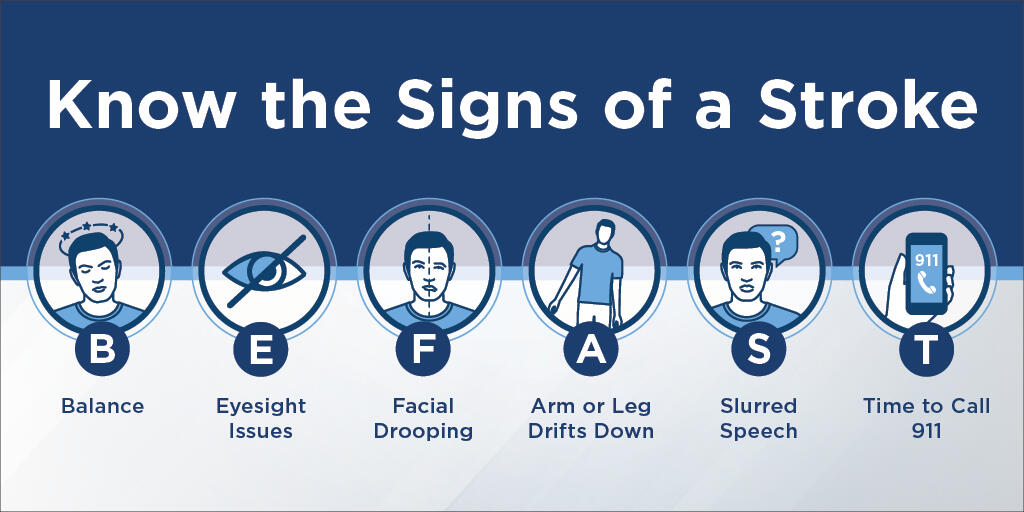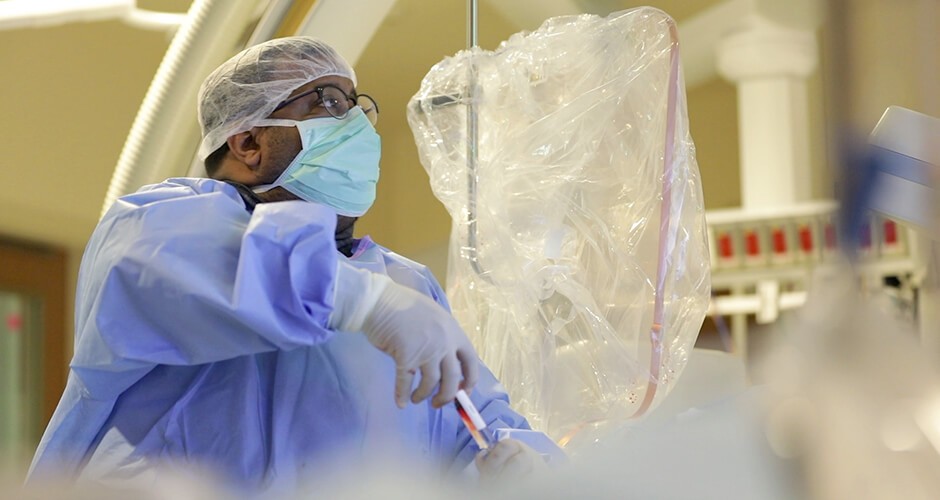Where your health is concerned, knowledge is power.
This is especially true when it comes to a stroke.
According to the Centers for Disease Control, someone in the United States has a stroke every 40 seconds. An individual dies from a stroke every 3 minutes and 14 seconds.
The CDC also says that stroke is a leading cause of serious long-term disability and reduces mobility in more than half of stroke survivors age 65 and older.
While a stroke may not always be preventable, there are steps you can take to lower your risk of having one. And, in the event of a stroke, knowing the signs and acting quickly can lessen its effects.
If you suddenly experience any of the following symptoms, don’t delay. Quick intervention is vital for the best possible recovery.

Your age, gender and ethnicity all play into your risk of having a stroke. Medical risk factors include:
- Atrial fibrillation
- Circulation issues
- Diabetes
- High blood pressure
- High cholesterol
Lifestyle risk factors include:
- Drinking alcohol
- Lack of physical activity
- Smoking
- Unhealthy eating habits
If you have any of the risk factors associated with a stroke, talk with your doctor about the best ways you can guard your health. Some suggestions might include:
- Eating a well-balanced diet with a lower amount of sodium
- Exercising in a way that works for you
- Keeping tight control of your diabetes
- Quitting smoking
- Regulating your high blood pressure with medication, weight loss and/or exercise
Some medications are known to increase your risk of stroke, so be sure to educate yourself on the side effects of any medications you take, and consult with your doctor if a change is needed.
Having a stroke can be a frightening experience. It's important to know what to expect in your recovery.



